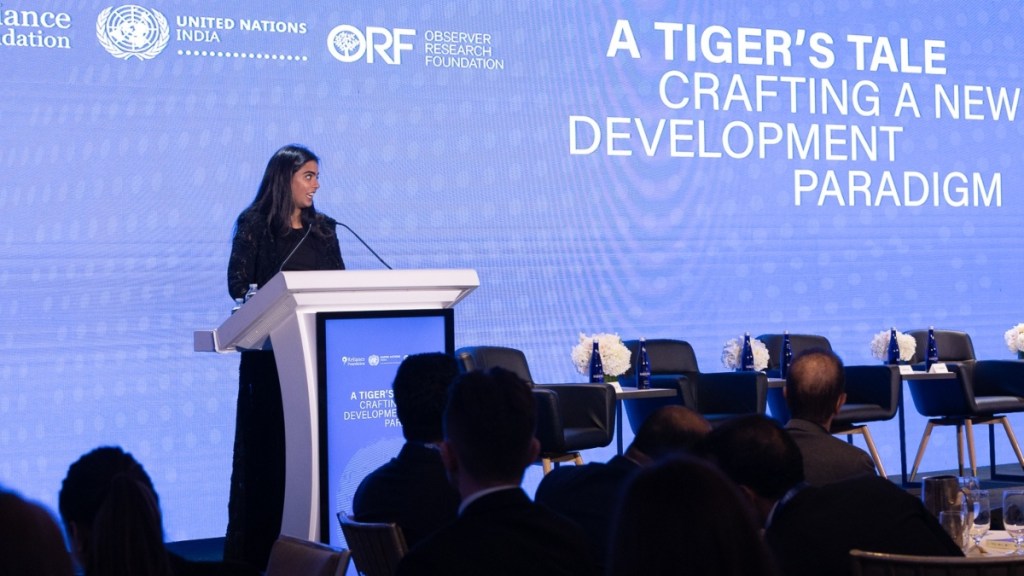At the 79th United Nations General Assembly (UNGA) week in New York, India’s expanding influence in global development was a central theme, underscored by the “India Day” event.
Hosted in collaboration by the Reliance Foundation, Observer Research Foundation (ORF), and the UN in India, the discussions emphasized India’s significant leadership role in shaping global policies and sustainable development for the future.
Isha Ambani, Director of Reliance Foundation, delivered a powerful opening speech, expressing India’s critical position in the evolving global landscape. “India is not just witnessing change but actively shaping a better future for all, particularly the youth,” she remarked. Ambani introduced the concept of ‘Pancha Tantra,’ which identified five strategic pathways essential for long-term, equitable development. These include the empowerment of women and youth, leveraging partnerships, technological innovation, and a bold vision for the future.
A major highlight of the event was the high-level panel discussion, `Tiger’s Tale: Crafting a New Development Paradigm’, which explored India’s growing influence, especially in the Global South. The conversation centered on how India is setting new benchmarks for development and fostering innovation in key areas. S Jaishankar, Minister of External Affairs, stressed that India’s leadership in global development is now a recognized reality, particularly in its advocacy for the Global South. “At the United Nations, India is acknowledged as a nation with heart, leading efforts to bring the Global South back into focus,” Jaishankar noted.
The panelists also addressed the importance of democratizing technology and fostering equitable global workplaces. Sultan Ahmed bin Sulayem, CEO of DP World, pointed out the challenges in global trade linkages, advocating for stronger connectivity to benefit all stakeholders. Similarly, Hugh Hilton Todd, Foreign Minister of Guyana, called for more determined political will to achieve the Sustainable Development Goals (SDGs), highlighting the crucial role of countries like India in this global effort.
In a reflective moment, India’s Permanent Representative to the UN, P Harish, focused on the importance of India’s youth in shaping the country’s future development. “When the tale of the tiger is told, it will be told by the cubs and the young tigers,” he stated, symbolizing the emerging power of India’s younger generation.
The discussions throughout the day covered a wide range of topics, including women-led development, the role of technology as a driver of change, and pathways for the rising Global South. The audience included representatives from government bodies, international organizations, think tanks, academia, and the private sector, all of whom contributed to a robust dialogue on the future of global development.
A significant outcome of the event was the release of `The Next Frontier: Charting the Contours of the Post-2030 Development Agenda’, a publication co-authored by global experts and released by Reliance Foundation, ORF, and the UN in India. This collection of essays offers insights into strategies for sustainable development beyond 2030, reflecting the need for innovative solutions and inclusive leadership to address global challenges.


